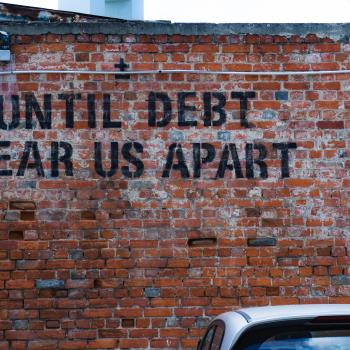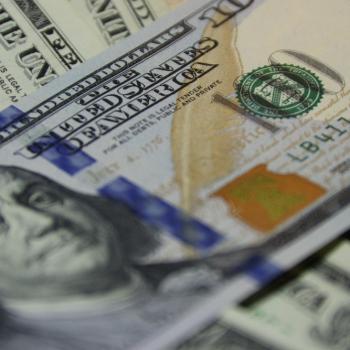So many people who are in debt try – and repeatedly fail – to get out of it. They might beat themselves up for being “weak” or utterly incapable of mastering their finances. In truth, they’re neither weak nor incapable. They’re probably just going at it in the wrong way.
Simply resolving to get out of debt isn’t enough to make it happen. You have to make changes in your life that will enable you to do it.
One of the best ways to enable yourself to begin getting out of debt is to first focus on building your savings. To many, this can seem like the exact opposite of what’s needed. To get out of debt, you need to pay off your debt, right? Yes – but you may need to get something else in place first, like a well-stocked savings account. Here are some reasons why.
Getting Off Debt Dependence
One of the most basic reasons why it’s so difficult to get out of debt is the dependence that it creates. Let’s face it, credit is an easy way to do business – all you need to do is choose your product or service, swipe your card, and you’re on your way. You don’t even need to concern yourself with your ability to pay – it’s all done for you.
In order to get out of debt, you first have to learn to live without it – not so easy considering the above. And in order to do that, you need to replace it with something else.
Most of us need some way to balance out income and expenses. Though your income may be level from month to month, expenses have a way of ballooning in some months. That’s when credit cards become especially attractive. They can provide that short-term injection of cash that keeps you liquid during months when you are short.
To get out of debt, you need to eliminate your reliance on credit cards as a source of short-term cash. Savings are the best alternative to credit cards. It can do everything credit cards do to provide extra cash, but it will do it without leaving (or increasing) your debt overhang the following month.
Once you shift from credit to savings as your preferred source of cash, your financial situation can begin to improve. At first your credit card balances will stop growing. Then you’ll begin paying them down. Eventually, you’ll begin paying them down faster – because you can, and because you’ll find them to be increasingly irritating. Once you are comfortable living out of your savings and no longer need your credit cards, you’ll finally pay them off.
It’s a process, but it begins with shifting dependence from debt to savings.
Creating the Psychological Upper Hand
Another big problem with credit is that the people who have the largest amount of it often live in the classic hand-to-mouth fashion. Credit pays the bills, and your paycheck covers the loan and credit card payments. It’s a vicious circle that’s very difficult to get out of once you’re in it.
Much of this trap however is psychological. It’s driven by fear. The way to overcome that fear is by creating some breathing room in your budget. By building your savings, you’ll have that breathing room. And once you do, you’ll start to have options.
Instead of trying to pay down your credit lines, either to free them up for more spending or with the intention of making them go away, instead put some extra money into savings every month. As your savings grow you’ll start to feel better about yourself and about your ability to overcome your debt.
Having the Ability to Pay Off Debt in Big Chunks
If you try to pay off your debts gradually, it can be a long, slow process. Most of us can manage to keep the debt payoff intensity going for short spells, but if it turns into years, it can wear you down.
But if instead of concentrating on paying down your debt you put extra money into savings, you will eventually come to a point where you can pay your debts in big chunks. Let’s say you want to keep a minimum savings balance of $3,000; any amount beyond that is available to pay off debt – if that’s what you choose to do with it. Let’s say you keep saving all the way to $6,000. You can make a one time payment of $3,000 on your debts, and still have money in the bank.
The debt payoff will not only be substantial, but you’ll see improvement right before your eyes. You may even pay off an entire credit line. It will be progress that you’ll be able to see and benefit from.
If You Can Save Money on a Regular Basis, You Can Pay Off Debt
There are two changes that are happening in your financial situation when you begin to become a saver:
- You learn to live beneath your means (the foundation of all financial progress)
- You create the budgetary flexibility necessary to pay off your debts.
You get into debt by not having control of your finances, forcing you to borrow to cover what you need. But when you build savings, you take control of your finances. By then, you no longer need debt.
If you’ve had little luck getting out of debt by trying to pay it off directly, it may be time to change your strategy. Start focusing instead on building up your savings, and see if that doesn’t work better for you.
Have you tried to get out of debt with no success? Do you see how building your savings first might help? Leave a comment with your thoughts!











